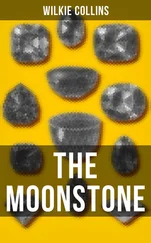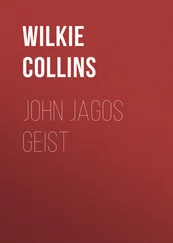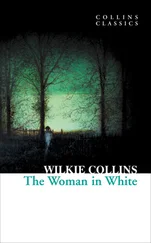Wilkie Collins - The Lazy Tour of Two Idle Apprentices
Здесь есть возможность читать онлайн «Wilkie Collins - The Lazy Tour of Two Idle Apprentices» весь текст электронной книги совершенно бесплатно (целиком полную версию без сокращений). В некоторых случаях можно слушать аудио, скачать через торрент в формате fb2 и присутствует краткое содержание. Жанр: Классическая проза, на английском языке. Описание произведения, (предисловие) а так же отзывы посетителей доступны на портале библиотеки ЛибКат.
- Название:The Lazy Tour of Two Idle Apprentices
- Автор:
- Жанр:
- Год:неизвестен
- ISBN:нет данных
- Рейтинг книги:5 / 5. Голосов: 1
-
Избранное:Добавить в избранное
- Отзывы:
-
Ваша оценка:
- 100
- 1
- 2
- 3
- 4
- 5
The Lazy Tour of Two Idle Apprentices: краткое содержание, описание и аннотация
Предлагаем к чтению аннотацию, описание, краткое содержание или предисловие (зависит от того, что написал сам автор книги «The Lazy Tour of Two Idle Apprentices»). Если вы не нашли необходимую информацию о книге — напишите в комментариях, мы постараемся отыскать её.
The Lazy Tour of Two Idle Apprentices — читать онлайн бесплатно полную книгу (весь текст) целиком
Ниже представлен текст книги, разбитый по страницам. Система сохранения места последней прочитанной страницы, позволяет с удобством читать онлайн бесплатно книгу «The Lazy Tour of Two Idle Apprentices», без необходимости каждый раз заново искать на чём Вы остановились. Поставьте закладку, и сможете в любой момент перейти на страницу, на которой закончили чтение.
Интервал:
Закладка:
‘He’s a very quiet sleeper,’ said Arthur.
‘Yes,’ said the landlord, ‘very quiet.’
Young Holliday advanced with the candle, and looked in at the man cautiously.
‘How pale he is!’ said Arthur.
‘Yes,’ returned the landlord, ‘pale enough, isn’t he?’
Arthur looked closer at the man. The bedclothes were drawn up to his chin, and they lay perfectly still over the region of his chest. Surprised and vaguely startled, as he noticed this, Arthur stooped down closer over the stranger; looked at his ashy, parted lips; listened breathlessly for an instant; looked again at the strangely still face, and the motionless lips and chest; and turned round suddenly on the landlord, with his own cheeks as pale for the moment as the hollow cheeks of the man on the bed.
‘Come here,’ he whispered, under his breath. ‘Come here, for God’s sake! The man’s not asleep—he is dead!’
‘You have found that out sooner than I thought you would,’ said the landlord, composedly. ‘Yes, he’s dead, sure enough. He died at five o’clock to-day.’
‘How did he die? Who is he?’ asked Arthur, staggered, for a moment, by the audacious coolness of the answer.
‘As to who is he,’ rejoined the landlord, ‘I know no more about him than you do. There are his books and letters and things, all sealed up in that brown-paper parcel, for the Coroner’s inquest to open to-morrow or next day. He’s been here a week, paying his way fairly enough, and stopping in-doors, for the most part, as if he was ailing. My girl brought him up his tea at five to-day; and as he was pouring of it out, he fell down in a faint, or a fit, or a compound of both, for anything I know. We could not bring him to—and I said he was dead. And the doctor couldn’t bring him to—and the doctor said he was dead. And there he is. And the Coroner’s inquest’s coming as soon as it can. And that’s as much as I know about it.’
Arthur held the candle close to the man’s lips. The flame still burnt straight up, as steadily as before. There was a moment of silence; and the rain pattered drearily through it against the panes of the window.
‘If you haven’t got nothing more to say to me,’ continued the landlord, ‘I suppose I may go. You don’t expect your five shillings back, do you? There’s the bed I promised you, clean and comfortable. There’s the man I warranted not to disturb you, quiet in this world for ever. If you’re frightened to stop alone with him, that’s not my look out. I’ve kept my part of the bargain, and I mean to keep the money. I’m not Yorkshire, myself, young gentleman; but I’ve lived long enough in these parts to have my wits sharpened; and I shouldn’t wonder if you found out the way to brighten up yours, next time you come amongst us.’ With these words, the landlord turned towards the door, and laughed to himself softly, in high satisfaction at his own sharpness.
Startled and shocked as he was, Arthur had by this time sufficiently recovered himself to feel indignant at the trick that had been played on him, and at the insolent manner in which the landlord exulted in it.
‘Don’t laugh,’ he said sharply, ‘till you are quite sure you have got the laugh against me. You shan’t have the five shillings for nothing, my man. I’ll keep the bed.’
‘Will you?’ said the landlord. ‘Then I wish you a goodnight’s rest.’ With that brief farewell, he went out, and shut the door after him.
A good night’s rest! The words had hardly been spoken, the door had hardly been closed, before Arthur half-repented the hasty words that had just escaped him. Though not naturally over-sensitive, and not wanting in courage of the moral as well as the physical sort, the presence of the dead man had an instantaneously chilling effect on his mind when he found himself alone in the room—alone, and bound by his own rash words to stay there till the next morning. An older man would have thought nothing of those words, and would have acted, without reference to them, as his calmer sense suggested. But Arthur was too young to treat the ridicule, even of his inferiors, with contempt—too young not to fear the momentary humiliation of falsifying his own foolish boast, more than he feared the trial of watching out the long night in the same chamber with the dead.
‘It is but a few hours,’ he thought to himself, ‘and I can get away the first thing in the morning.’
He was looking towards the occupied bed as that idea passed through his mind, and the sharp, angular eminence made in the clothes by the dead man’s upturned feet again caught his eye. He advanced and drew the curtains, purposely abstaining, as he did so, from looking at the face of the corpse, lest he might unnerve himself at the outset by fastening some ghastly impression of it on his mind. He drew the curtain very gently, and sighed involuntarily as he closed it. ‘Poor fellow,’ he said, almost as sadly as if he had known the man. ‘Ah, poor fellow!’
He went next to the window. The night was black, and he could see nothing from it. The rain still pattered heavily against the glass. He inferred, from hearing it, that the window was at the back of the house; remembering that the front was sheltered from the weather by the court and the buildings over it.
While he was still standing at the window—for even the dreary rain was a relief, because of the sound it made; a relief, also, because it moved, and had some faint suggestion, in consequence, of life and companionship in it—while he was standing at the window, and looking vacantly into the black darkness outside, he heard a distant church-clock strike ten. Only ten! How was he to pass the time till the house was astir the next morning?
Under any other circumstances, he would have gone down to the public-house parlour, would have called for his grog, and would have laughed and talked with the company assembled as familiarly as if he had known them all his life. But the very thought of whiling away the time in this manner was distasteful to him. The new situation in which he was placed seemed to have altered him to himself already. Thus far, his life had been the common, trifling, prosaic, surface-life of a prosperous young man, with no troubles to conquer, and no trials to face. He had lost no relation whom he loved, no friend whom he treasured. Till this night, what share he had of the immortal inheritance that is divided amongst us all, had laid dormant within him. Till this night, Death and he had not once met, even in thought.
He took a few turns up and down the room—then stopped. The noise made by his boots on the poorly carpeted floor, jarred on his ear. He hesitated a little, and ended by taking the boots off, and walking backwards and forwards noiselessly. All desire to sleep or to rest had left him. The bare thought of lying down on the unoccupied bed instantly drew the picture on his mind of a dreadful mimicry of the position of the dead man. Who was he? What was the story of his past life? Poor he must have been, or he would not have stopped at such a place as The Two Robins Inn—and weakened, probably, by long illness, or he could hardly have died in the manner in which the landlord had described. Poor, ill, lonely,—dead in a strange place; dead, with nobody but a stranger to pity him. A sad story: truly, on the mere face of it, a very sad story.
While these thoughts were passing through his mind, he had stopped insensibly at the window, close to which stood the foot of the bed with the closed curtains. At first he looked at it absently; then he became conscious that his eyes were fixed on it; and then, a perverse desire took possession of him to do the very thing which he had resolved not to do, up to this time—to look at the dead man.
He stretched out his hand towards the curtains; but checked himself in the very act of undrawing them, turned his back sharply on the bed, and walked towards the chimney-piece, to see what things were placed on it, and to try if he could keep the dead man out of his mind in that way.
Читать дальшеИнтервал:
Закладка:
Похожие книги на «The Lazy Tour of Two Idle Apprentices»
Представляем Вашему вниманию похожие книги на «The Lazy Tour of Two Idle Apprentices» списком для выбора. Мы отобрали схожую по названию и смыслу литературу в надежде предоставить читателям больше вариантов отыскать новые, интересные, ещё непрочитанные произведения.
Обсуждение, отзывы о книге «The Lazy Tour of Two Idle Apprentices» и просто собственные мнения читателей. Оставьте ваши комментарии, напишите, что Вы думаете о произведении, его смысле или главных героях. Укажите что конкретно понравилось, а что нет, и почему Вы так считаете.











